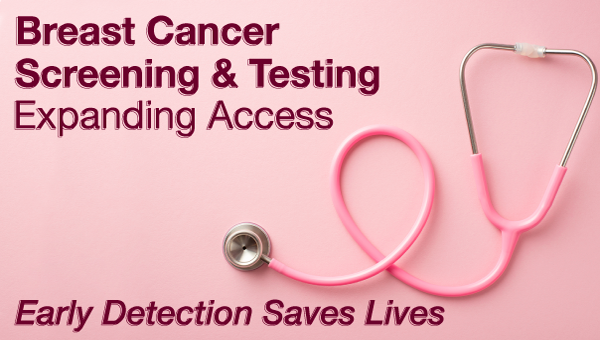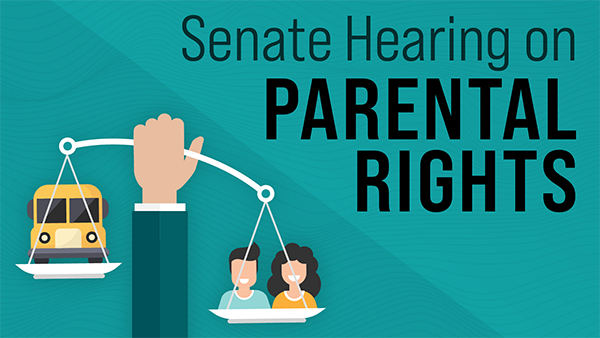
|
|||
|
In this Update:
Parents Mount Offensive to Save Kids from State Meddling, IndoctrinationParents, physicians and childhood advocates demanded action from state legislators today to protect their kids from government intrusion and indoctrination, said Sen. Doug Mastriano (R-33). “I introduced the Parental Bill of Rights after our governor and his administration orchestrated an unconstitutional takeover of our children’s health and wellbeing during the COVID-19 pandemic,” he said. “This legislation reaffirms what should go without saying, parents – and parents alone – are the first and last authority on raising their own kids.” Testifiers told the Senate State Government that the Department of Education and Gov. Tom Wolf wielded power and influence to overrule guidance from local health officials about in-person schooling and universal masking, leading to weeks of lost instruction and educational deficits that will profoundly scar an entire generation of children. Worse still, the committee learned that Wolf and his allies dragged concerned parents to court where they rejected responsibility for the questionable guidance and policies proliferating across Pennsylvania schools. Just some of the complaints parents lodged during the hearing include school libraries that offer books so graphic and explicit that their contents can’t be shared in public settings; curriculum that introduces kindergarteners to college-level theories on race and gender; teachers that want to withhold information about students’ mental health, sexual orientation or gender identity from their parents; and the privacy of biological girls in bathrooms and locker rooms taking a backseat to partisan ideology. “The administration’s mask is off,” Mastriano said. “The last few years have proven that government bureaucrats can and will do whatever it takes to divide families and indoctrinate a generation of compliant, subservient supporters. I stand shoulder-to-shoulder with the parents who refuse to tow the line and stay silent any longer.” What’s the Rush, CDC?Mastriano urged residents to tell the federal Centers for Disease Control and Prevention that COVID-19 vaccinations shouldn’t be included in the routine immunization schedule for children. “The COVID-19 vaccine is experimental, at best, and may pose more risk to children and teens than it does benefits,” Mastriano said. “Rushing to add this to the immunization schedule is not only dangerous, but could also disenfranchise millions of families if their kids are barred from school simply for refusing the vaccine.” In September, the CDC advertised a two-day meeting and requested comments on its pending decision to recommend updating the childhood immunization schedule to include the COVID-19 vaccine. Today, the Advisory Committee on Immunization Practices convened to vote on this proposal – just one day ahead of the public comment period closing. “Why is the CDC ignoring the science and rushing to recommend a vaccine that they, themselves, admit doesn’t prevent spread of the virus?” Mastriano said. “There’s enormous debate about the safety and efficacy of this vaccine, and yet, the country’s leading agency on disease prevention is tripping over itself to insist kids receive it – as if it’s as effective as immunizations to prevent polio, hepatitis or the measles.” Medical experts and researchers have released multiple studies pointing to the ineffectiveness of the vaccine in preventing infection or transmission of the COVID-19 virus. Data from the CDC released in October notes more than 783,000 people sought care for adverse vaccine reactions, and preliminary reports suggest nearly 17,000 died. Senate Approves Measures to Help Women at High Risk of Breast Cancer
The Senate this week passed two bills to help women at high risk for breast cancer, ensuring coverage for MRIs, ultrasounds and genetic testing with no out-of-pocket costs. Breast cancer is the second-most common cancer in women in the United States after skin cancers, and early detection is the key to saving lives. The Senate approved the following bills: Senate Bill 1225 eliminates out-of-pocket costs for breast MRI and ultrasound for women with high-risk conditions such as dense breast tissue, a family history of breast cancer, personal history of breast cancer, genetic predisposition or prior radiation therapy. Senate Bill 1330 removes costs associated with genetic testing and counseling for Pennsylvanians with a family history of breast and ovarian cancers. Genetic testing for heredity cancers provides the opportunity for earlier screenings and preventive treatments and procedures. At a news conference celebrating passage of the bills, PA Breast Cancer Coalition President Pat Halpin-Murphy said: “Senate Bill 1225 and Senate Bill 1330 will arm the women of Pennsylvania with the best tools possible to find breast cancer at its earliest, most treatable stage.” Other Bills Passed by the Senate this Week
In addition to bills expanding coverage for breast cancer prevention, the Senate approved the following measures this week: Senate Bill 1243 improves personal financial literacy by requiring completion of a half-credit economics and personal finance course as a high school graduation requirement. Senate Bill 139 directs the Department of Education to establish a model curriculum for instruction in the events and significance of Sept. 11, 2001 and provides for a moment of silence in schools on 9/11. Senate Bill 1265 creates an online registry of fire courses for firefighters similar to what is maintained for medical responders, EMTs and paramedics. Senate Bill 1282 grants land banks the same environmental protections other economic development agencies receive when dealing with brownfields. You can find a list of all bills that received votes in the Senate this week here. Senate Committee Reviews Legislation to Empower Parents
The Senate State Government Committee held a public hearing Tuesday on legislation to establish by state statute the rights of parents over the upbringing of their children. The hearing featured testimony from Pennsylvania parents and parental rights advocacy groups. Testifiers discussed the importance of the parent-child bond, the impact of the COVID-19 pandemic on learning, and the inability of parents to remove inappropriate material from Pennsylvania schools. Senate Bill 996 would make clear in statute that the state, counties, local governments and school districts may not infringe on the fundamental rights of parents to direct the upbringing, education, health care and mental health of their children without demonstrating that such action is reasonable and necessary to achieve a compelling state interest — narrowly tailored – and not otherwise achieved by less restrictive means. The legislation would also ensure a parent’s right to access and review all school records related to their child, a right to review all instructional materials used throughout the school year, and the right to opt out their child from certain curriculum that the parent finds to be objectionable or harmful. Earlier this year, the Senate approved legislation to require school districts to identify sexually explicit content in school curriculum and materials and notify parents that their child’s coursework includes such content, and prohibit classroom instruction on gender identity and sexual orientation for pre-kindergarten through fifth-grade students. HARP Helps Hospitality Workers in Need
Hospitality Assistance Response of PA (HARP) provides immediate, emergency funding to servers, bartenders, front-desk workers, housekeepers, receptionists, cashiers, cooks and others in need in the hospitality field. HARP is a 501(c)(3) funded by private donations and can help with medical bills or general hardship and provide immediate relief to hospitality employees experiencing a variety of other financial challenges. Grants are awarded on a first-come, first-served basis and subject to availability of funds. If you want to donate or know a hospitality worker who needs help, you can find information here. Cultural and Historical Support Grants Available
Applications are being accepted from qualified museums and official county historical societies for nearly $2 million in state Cultural and Historical Support Grants. Among other uses, the grants can supply general operating support to museums and official county historical societies that are not supported by other state agency funding programs. Eligible museums must have annual operating budgets exceeding $100,000 and at least one full-time professional staff person (some museums are not eligible if they are eligible for grant support from other state agencies). The Pennsylvania Historical & Museum Commission has eligibility information and grant guidelines. The deadline to apply is Nov. 7. Domestic Violence Awareness Month
|
|||
|
|||
|
If you do not wish to receive this email, click here to unsubscribe. 2022 © Senate of Pennsylvania | https://senatormastriano.com | Privacy Policy |





